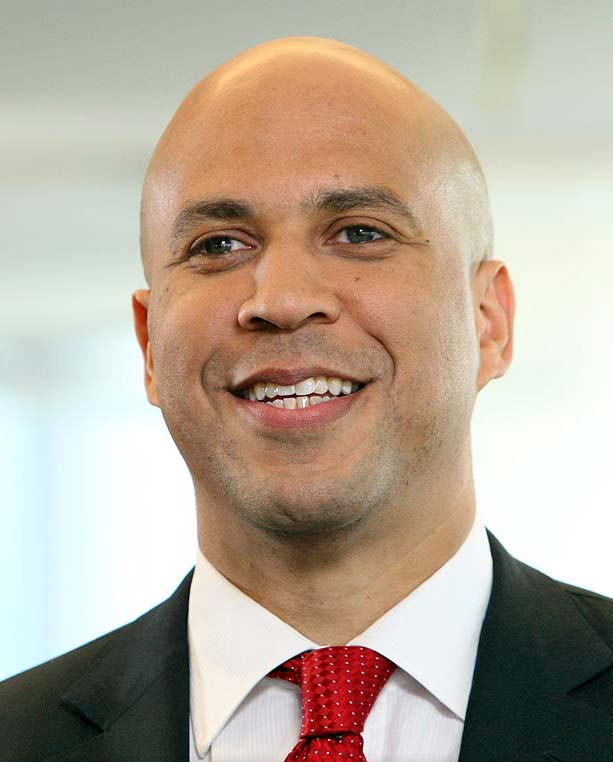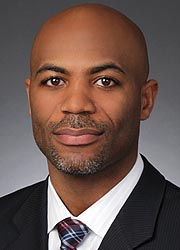
Less Funding for HBCUs, Senate Confirms Erek Barron & More: Oct. 8 Joint Center Roundup
The Joint Center is releasing an abbreviated roundup this week. We will resume our more robust roundup soon.
Biden Administration

HBCUs may receive less funding: Associated Press reports that Historically Black Colleges and Universities (HBCUs) may only receive a total of $2 billion instead of $45 billion initially promised by President Biden’s initial bill. The reduction is reportedly due to funding becoming “ensnared in Democratic infighting over the size of the economic package and what it should cover.” Associated Press also notes the $2 billion “can go toward educational programs and infrastructure for Black colleges, and even that amount would be reduced to competitive grant funding rather than direct allocations.” USAToday’s Tennessean reports several HBCU leaders—including Tennessee State University President Glenda Glover—testified before Congress urging Members of Congress to “right historic ‘discriminatory’ funding practices and continue supporting the schools.” See additional coverage in Black Enterprise.
EDA announces grant program for HBCUs, TCUs, and MSIs: The U.S. Economic Development Administration announced the $3 billion Economic Development grant which includes the Connecting Minority Communities Pilot Program, a $268 million grant program for Historically Black Colleges and Universities (HBCUs), Tribal Colleges and Universities (TCUs), and Minority-Serving Institutions (MSIs) “for the purchase of broadband internet access service and eligible equipment or to hire and train information technology personnel.” The Joint Center’s Tech Policy Director Dr. Dominique Harrison recently released a 36-page report, “Affordability & Availability: Expanding Broadband in the Black Rural South,” which calls for local governments to “prioritize federal infrastructure funding they receive for HBCUs to promote broadband access, adoption, telehealth, and digital readiness in their surrounding communities” and for the Connecting Minority Communities program to “ensure HBCUs are connected to existing and planned regional and state broadband networks and provide case studies on best practices for successful partnerships and projects between HBCUs and Black-led businesses and nonprofits.”
President Biden called for the passage of the infrastructure bill: After bipartisan negotiations on the infrastructure bill remain stalled in Congress, President Biden shares the importance of passing the legislation: “It’s about rebuilding our roads, our highways, our bridges, our ports, our airports, our broadband—all the things that need repair. Our arteries of our economy have always been fueled by the economic might and dynamism of Americans.” President Biden also met with 11 House Democrats—including Congressman Colin Allred (D-TX), Congresswoman Lucy McBath (D-GA), and Congresswoman Lauren Underwood (D-IL)—about “the pathway forward for the bipartisan Infrastructure Investment and Jobs Act as well as his Build Back Better agenda.” Senator Joe Manchin (D-WV) also said “[n]othing changes” regarding his stance on eliminating the filibuster. As of now, a filibuster requires 60 votes to end, but Democrats control only 50 seats in the Senate.
The Hill

Sen. Booker promises not to give up on federal police reform: In an interview with CBS News, Senator Cory Booker (D-NJ) said he “will not give up” on passing legislation to overhaul policing practices “because it is not a partisan issue, it is a moral issue.” The interview comes after negotiations ended between Senator Booker and Senator Tim Scott (R-SC) after Sen. Scott reportedly “refused to put into law former President Donald Trump’s executive order banning chokeholds except when deadly force was warranted, and award federal grants only to those police departments certified by an independent credentialing agency.”
New redistricting in Texas force two Black leaders to run against each other: Texas Tribune reports that Congress Members Sheila Jackson Lee (D-TX) and Al Green (D-TX) testified at the Texas Capitol “against proposed district maps that would break up communities of Black voters and pit the two incumbents against each other.” Out of the 36 districts in Texas, only five are represented by Black members. After their testimony, the “Senate committee voted out the redrawn congressional map Monday without addressing the district overlap.” There is still time for the redistricting to be addressed though as the new congressional map proposal will head next to the full Senate for a vote, followed by approval in the House before it’s signed into law by Governor Greg Abbott (R). Associated Press reports Arkansas lawmakers also recently passed a congressional redistricting plan that “critics say weakens the influence” of Black and Latina/o voters in the Little Rock area “by splitting the state’s most populous county among three U.S. House districts.” The plan is heading to Arkansas Governor Asa Hutchinson (R), who reportedly is “reviewing the redistricting proposal and will make a decision next week on whether to sign it.” As Associated Press notes “the governor has five days once the bill reaches his desk, not counting Sunday, to sign or veto the bill before it becomes law without his signature.”

Senate confirms Erek Barron as U.S. attorney for Maryland: With the confirmation, Mr. Barron will become the first Black U.S. attorney in the state. Mr. Barron is a partner at the law firm of Whiteford Taylor & Preston LLP. Since 2015, he has been serving as a member of the Maryland legislature. He has previously served as a counsel and policy advisor to then-Senator Biden on the Senate Judiciary Committee’s Subcommittee on Crime and Drugs. He also served as a federal prosecutor in the Criminal Division at the Department of Justice. The Joint Center supported Mr. Barron through our Black Talent Initiative.
CBC Members call for Fort Lee to be renamed after a Black veteran: Under the leadership of Congressman Donald McEachin (D-VA), over 20 members of the Congressional Black Caucus signed a letter urging members of the Commission on the Naming of Items of the Department of Defense to rename Fort Lee after Lt. Gen. Arthur Gregg, a retired Black Army general. Fort Lee is currently named after Robert E. Lee, a Confederate general in the Civil War. The Progress-Index—a Virginia newspaper part of the USA Today network—reports that “there are currently there are no military bases anywhere in the United States named after Black soldiers.”
Upcoming congressional hearings include “Hearings to examine evaluating the Federal response to the persistence and impacts of PFAS chemicals on our environment” (Senate Environment and Public Works, Oct. 20).
Movement Building
National Urban League and Experian launched a partnership to support financial inclusion. Through the partnership, Experian is providing National Urban League Young Professionals and those enrolled in one of 12 Urban League Entrepreneurship Centers with free access to their Experian consumer credit report and FICO® Score, along with the ability to potentially increase their credit scores instantly with Experian Boost™.
The African American Mayors Association calls on Congress, in a bipartisan effort, to vote in favor of suspending or raising the debt ceiling to avoid widespread economic crisis. Failure to act will lead the federal government to impose sharp, massive spending reductions that will negatively impact working families, businesses, and non-profit organizations.
The National Black Caucus of State Legislators (NBCSL), with the support of Amazon, has partnered with the Ronald W. Walters Leadership and Public Policy Center at Howard University to research methods to improve the policymaking process for Black legislators. NBCSL will develop the Public Policy and Research Institute (PPRI) to level the policy development field in response to the findings and establish a new policymaking paradigm to meet the needs of today’s state legislators as they use research and data to inform new legislation aimed at addressing racial inequity.
Events
Upcoming events include “5th Annual DC Fintech Week” with Joint Center Technology Policy Director Dr. Dominique Harrison, (Georgetown University Law Center & The Institute for Financial Markets, Oct. 21); “Fair Elections and Free Speech Center | Disinformation in American Elections Part II: Legal Scholars” with Joint Center President Spencer Overton (University of California, Irvine School of Law, Oct. 27); and “From One Unprecedented Year to the Next: Insights From the Experts” with Joint Center Vice President of Policy Jessica Fulton (Financial Health Network, Nov. 3).
Podcast
TechTank Podcast Episode 29: Online behavioral advertising can be discriminatory, so what’s the plan to fix this? with Joint Center Technology Policy Director Dr. Dominique Harrison (Brookings Institution)

